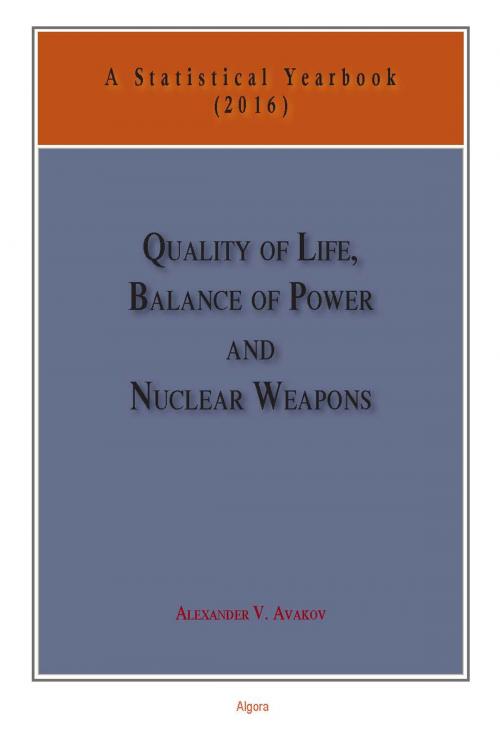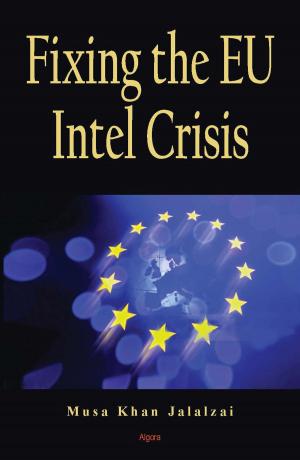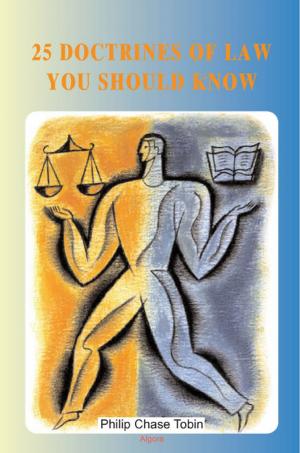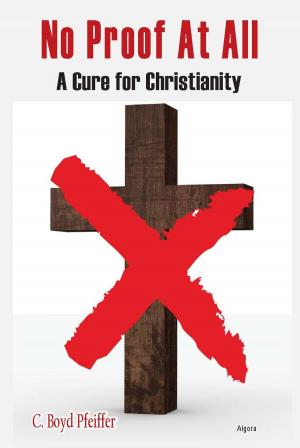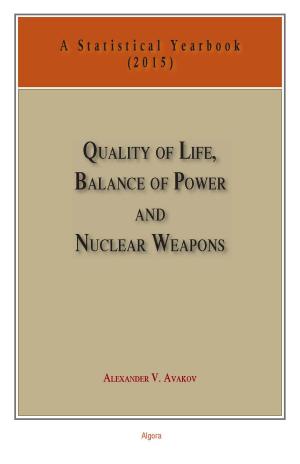Quality of Life, Balance of Power, and Nuclear Weapons (2016)
A Statistical Yearbook for Statesmen and Citizens
Nonfiction, Social & Cultural Studies, Political Science, Politics, Reference, Reference & Language, Almanacs & Trivia, Yearbooks & Annuals| Author: | Alexander V. Avakov | ISBN: | 9781628941852 |
| Publisher: | Algora Publishing | Publication: | October 5, 2016 |
| Imprint: | Algora Publishing | Language: | English |
| Author: | Alexander V. Avakov |
| ISBN: | 9781628941852 |
| Publisher: | Algora Publishing |
| Publication: | October 5, 2016 |
| Imprint: | Algora Publishing |
| Language: | English |
Who has the most nuclear assets in the Middle East? Whose power is waning, whose increasing? Updated annually, these tables of economic, demographic and military indicators establish the pecking order, with estimates of all nuclear arsenals including rarely published data on non-signatory nations.
This statistical annual presents fundamental data in three sections: (1) Quality of Life, (2) Balance of Power, and (3) Developed Market Economies since 1960.
The author has managed to increase the number of countries tallied in the economic and other data by writing proprietary software utilizing statistical regressions. The author also brings a rational perspective to the public debates on the supposed efficiency of private health insurance versus a 'public option,' and the notion that taxation stifles the economy, by offering comparative statistics from developed countries.
Is there a relationship between the economic basis and the political superstructure? Marx seemed to think so, and the author put this long-ago speculation to the statistical test as well.
Avakov s Quality of Life is far more complete other statistical publications. This year, the number of countries/territories with data about GDP and GDP per capita is increased to 254. The new additions are the Aland Islands, Bonaire, Christmas Island, Cocos (Keeling) Islands, Donetsk People’s Republic, Holy See, Luhansk People’s Republic, Norfolk Island, Pitcairn Islands, Saba, Saint Barthelemy, Sint Eustatius, and Somaliland.
The number of countries with population data is increased to 271. The list of independent states is trickier. Some of the states included in this category (like frozen conflict states of the former U.S.S.R. and Northern Cyprus) are recognized only by a handful of states. Extreme examples — Donetsk People’s Republic, Luhansk People’s Republic, and Somaliland — are not recognized by anybody. The standard used is the sovereignty doctrine, which does not require international recognition but requires the existence of separate governments and control over their territories. This novel yearbook is complemented by the author's bi-annual Two Thousand Years of Economic Statistics.
Who has the most nuclear assets in the Middle East? Whose power is waning, whose increasing? Updated annually, these tables of economic, demographic and military indicators establish the pecking order, with estimates of all nuclear arsenals including rarely published data on non-signatory nations.
This statistical annual presents fundamental data in three sections: (1) Quality of Life, (2) Balance of Power, and (3) Developed Market Economies since 1960.
The author has managed to increase the number of countries tallied in the economic and other data by writing proprietary software utilizing statistical regressions. The author also brings a rational perspective to the public debates on the supposed efficiency of private health insurance versus a 'public option,' and the notion that taxation stifles the economy, by offering comparative statistics from developed countries.
Is there a relationship between the economic basis and the political superstructure? Marx seemed to think so, and the author put this long-ago speculation to the statistical test as well.
Avakov s Quality of Life is far more complete other statistical publications. This year, the number of countries/territories with data about GDP and GDP per capita is increased to 254. The new additions are the Aland Islands, Bonaire, Christmas Island, Cocos (Keeling) Islands, Donetsk People’s Republic, Holy See, Luhansk People’s Republic, Norfolk Island, Pitcairn Islands, Saba, Saint Barthelemy, Sint Eustatius, and Somaliland.
The number of countries with population data is increased to 271. The list of independent states is trickier. Some of the states included in this category (like frozen conflict states of the former U.S.S.R. and Northern Cyprus) are recognized only by a handful of states. Extreme examples — Donetsk People’s Republic, Luhansk People’s Republic, and Somaliland — are not recognized by anybody. The standard used is the sovereignty doctrine, which does not require international recognition but requires the existence of separate governments and control over their territories. This novel yearbook is complemented by the author's bi-annual Two Thousand Years of Economic Statistics.
